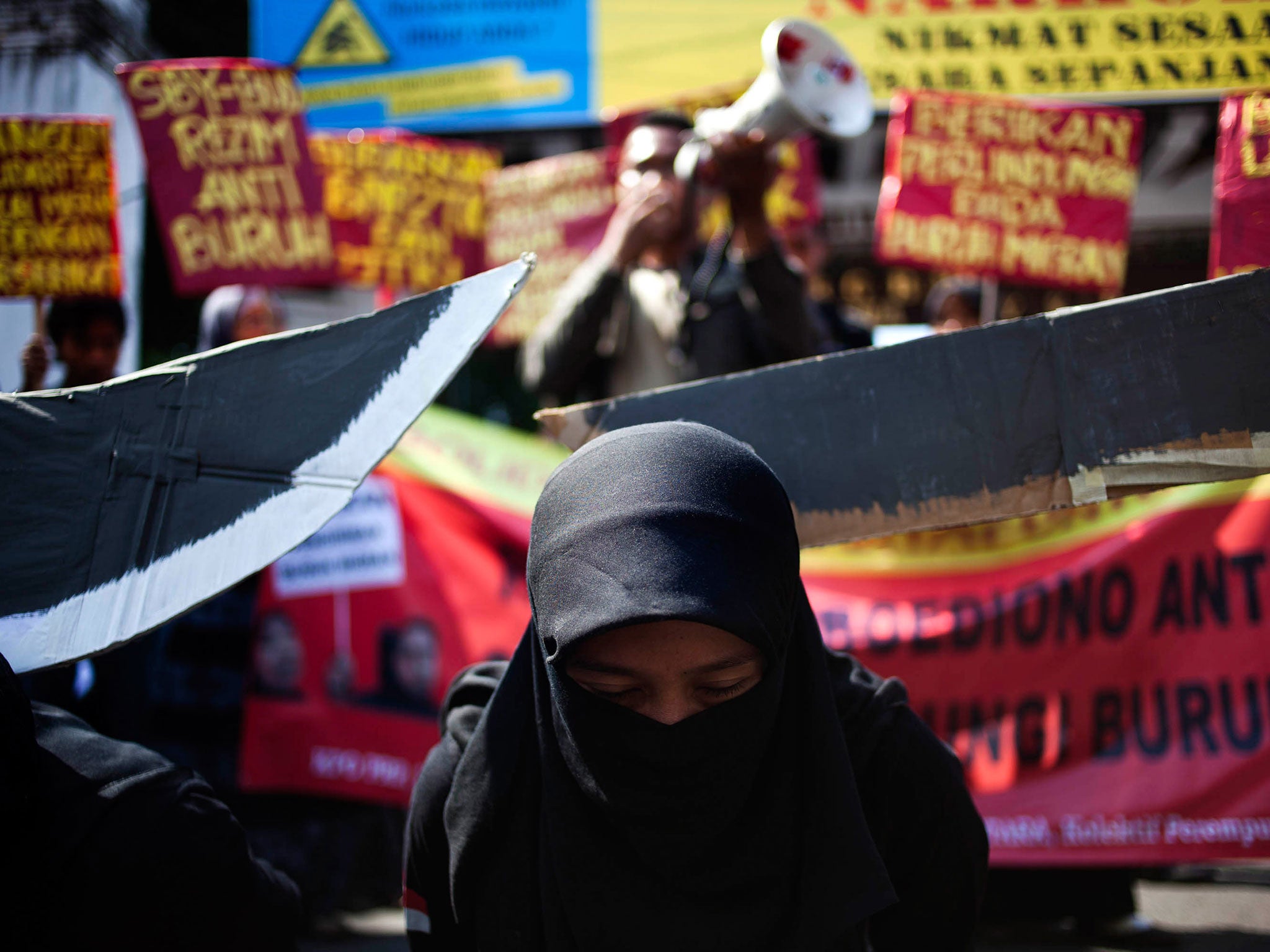Saudi Arabia executes 'a person every two days' as rate of beheadings soars under King Salman
Those killed include children and people with mental disabilities

Saudi Arabia has executed at least 175 people in the past year, at a rate of one every two days, according to a report by Amnesty International.
The kingdom killed 102 convicted criminals in the first six months of 2015 alone, putting it on course to beat its 1995 record number for the calendar year of 192. Those killed included children under the age of 18 at the time of the offence, and disabled people.
Amnesty, which alongside the AFP news agency keeps a record of the number of people the Saudi government kills, said the execution rate suddenly surged in August last year and continued to rise under the new King Salman from January.
According to a new 44-page report released by the charity today, at least 2,208 people have been executed in Saudi Arabia since January 1985.
Nearly half of those, 48.5 per cent, were of foreign nationals, who Amnesty said suffer disproportionately under the Saudi justice system because of a combination of xenophobic prejudice and a lack of Arabic to understand proceedings.
More than one in four – 28 per cent since 1991 – have been for drug-related offences, and death sentences were also given for other crimes not considered the “most serious” – or even illegal at all – under international standards. They include adultery, “apostasy”, witchcraft and sorcery.
Said Boumedouha, Amnesty’s acting Middle East director, said the Saudi justice system which authorised the killings was “deeply-flawed”.
He said: “The use of the death penalty is horrendous in all circumstances, and is particularly deplorable when it is arbitrarily applied after blatantly unfair trials.
“Instead of defending the country’s appalling record, the Saudi Arabian authorities should urgently establish an official moratorium on executions and implement international fair trial standards in all criminal cases.”
Beheadings in public
Amnesty said that Saudi Arabia carried out most of its executions in the period by beheading, although some were killed by firing squad.
Despite UN calls for the end of executions by public, many convicts were beheaded in either the public square of the town or city where they were sentenced, or in other publically-accessible spaces.
In some cases, the remains of those executed were displayed in public as a deterrent to others, Amnesty said. Typically done in cases of “haraba” or banditry, this involved tying the decapitated corpse along with the victim’s head in a bag to a post in a public square.
Children and disabled people
Amnesty’s report highlighted two recent cases where vulnerable people were sentenced to death in clear violation of international standards and laws – including conventions to which Saudi Arabia is a party.
It said that on 27 May last year, a court in Jeddah convicted and sentenced to death a young man named Ali Mohammed Baqir al-Nimr, who was 16 or at most 17 when he was accused of committing crimes of demonstrating against the government, attacking the security forces and armed robbery.
Amnesty said Ali al-Nimr was largely convicted on the basis of signed “confessions”, which he has said were extracted under torture.
This year, on 14 April, the kingdom executed an Indonesian mother of two and domestic worker accused of killing her employer. Despite reports that the security forces believed Siti Zainab Binti Duhri Rupa suffered from a severe mental disability, she was interrogated and made to “confess” in 1999. Amnesty said she had no legal representation throughout her detention and trial.
No access
Amnesty said its report, “‘Killing in the Name of Justice’: the death penalty in Saudi Arabia”, was compiled based on interviews with those who had been sentenced to death, their legal teams or their families.
It also analysed legal documents, and kept track of government releases and reports on death sentences from official news outlets.
But the charity said it has never been granted access to the country itself, or received a single response on its findings or letters from the Saudi government.
Where most executions were carried out in 2014
Show all 10In some cases, it said, families and convicts were told their cases would only be “complicated” if they tried to contact international bodies, and that they could only receive pardons if they didn’t do so. Relatives only went to Amnesty in such cases after they found they had been lied to.
Saudi Arabia ranked third in an Amnesty study of the top countries in the world for numbers of executions last year. It was behind China and Iran, but ahead of Iraq and the US.
The kingdom has rarely commented in public on the harshest punishments in its system of religion-backed Sharia law. In a rare interview in 2003, a man described as the country’s leading executioner told Arab News he was “very proud to do God’s work”.
Subscribe to Independent Premium to bookmark this article
Want to bookmark your favourite articles and stories to read or reference later? Start your Independent Premium subscription today.

Join our commenting forum
Join thought-provoking conversations, follow other Independent readers and see their replies